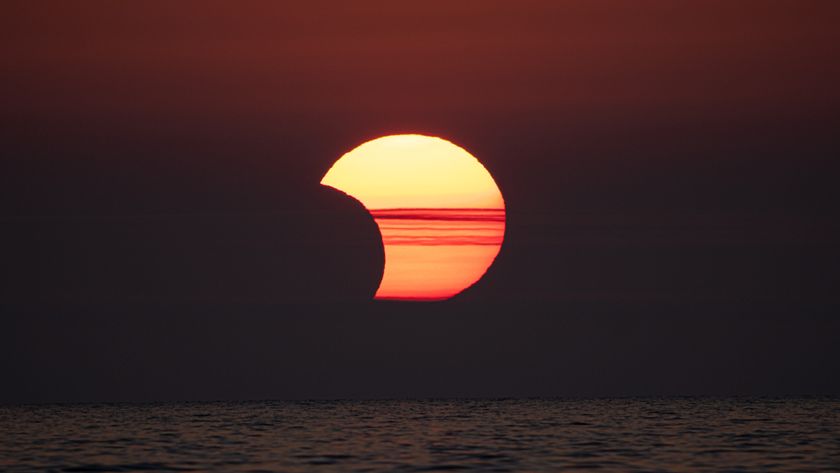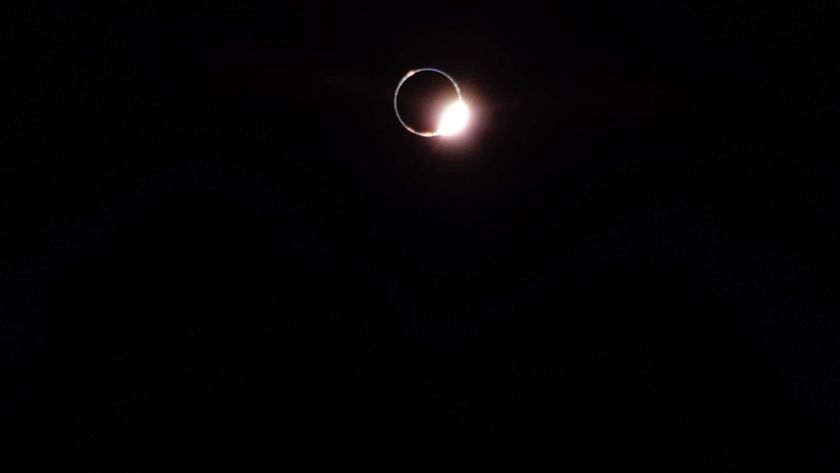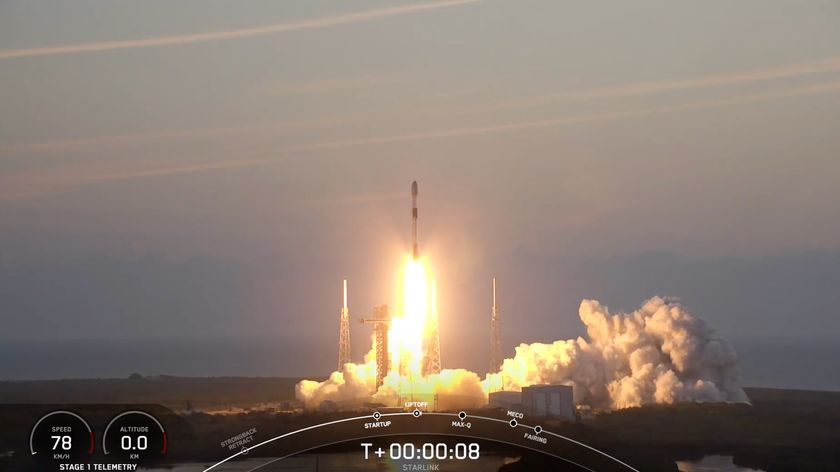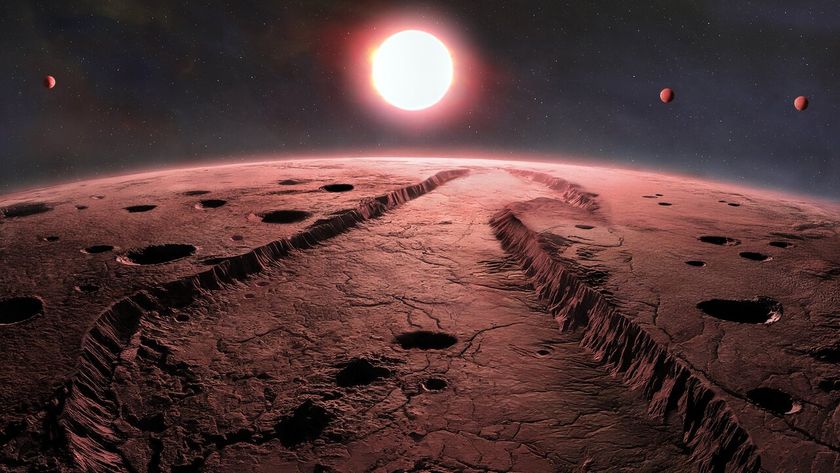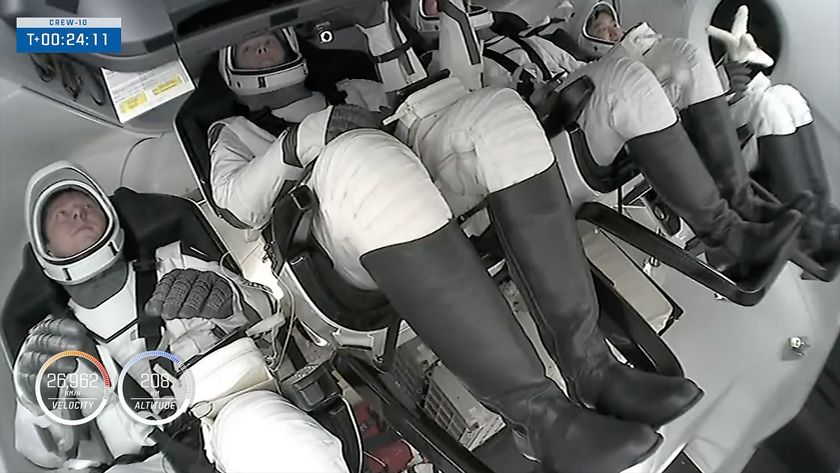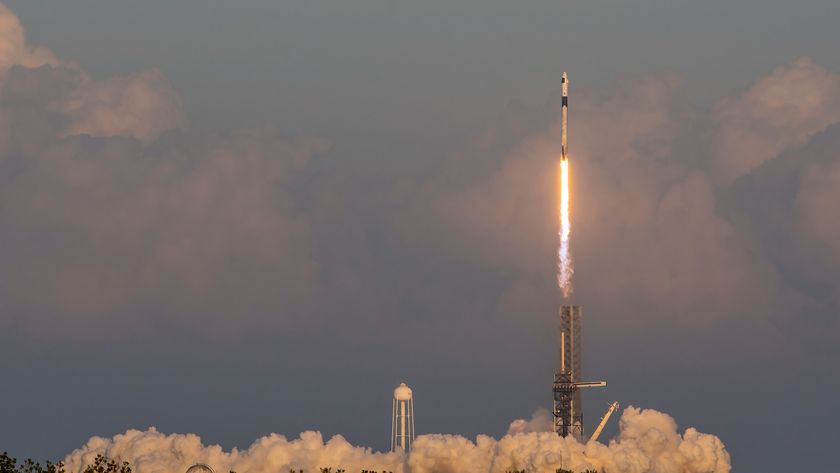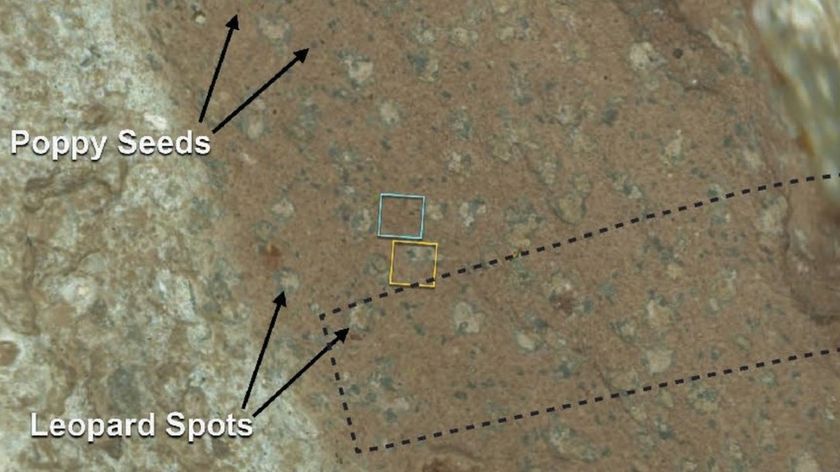Photos and Images: Asteroid 163 Erigone Eclipses Bright Star in Rare Celestial Event
Asteroid 163 Erigone Near Regulus
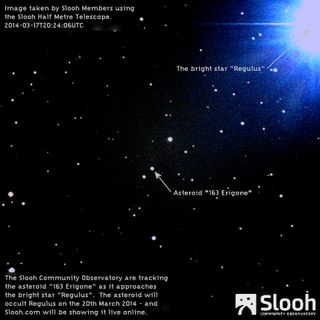
On March 20, 2014, the bright asteroid Regulus will "wink" out when it is eclipsed (or "occulted") by the huge asteroid 163 Erigone. It is an extremely rare celestial event only visible from a slim track across North America. In this gallery, see photos and images of the rare cosmic sight. In this image: The asteroid 163 Erigone is seen near the bright star Regulus on March 17, 2014, just days ahead of its March 20 occultation. [How to See Asteroid Erigone Eclipse Regulus]
Asteroid To Block Light From A Star - How To See It | Video
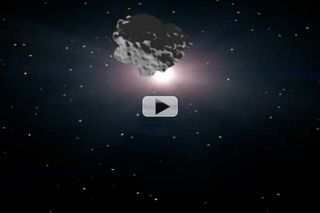
Asteroid 163 Erigone will occult the star Regulus on March 20th, 2014 at 2:06am ET and can be seen in part of the Northeast United States. Watch this video of the rare celestial event to see how to watch the asteroid occultation on your own. [How to See Asteroid Erigone Eclipse Regulus]
Path of Regulus by 163 Erigone Predicted Occultation
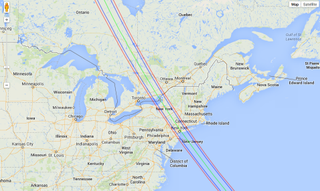
The predicted occultation path of the bright star Regulus by the asteroid 163 Erigone on March 20, 2014 is shown in this map by Geoff Hitchcox/IOTA using Google Maps. The blue lines show the outer edges of the zone where Regulus will be blacked out if the prediction is perfect. Astronomers expect the prediction to be closely on target; the actual shadow path is almost sure to fall somewhere between the slightly wider uncertainty lines (within the red lines to 68-percent probability, within the gray lines to 95-percent probability). [How to See Asteroid Erigone Eclipse Regulus]
Asteroid Will Block Bright Star - How It Will Look | Video
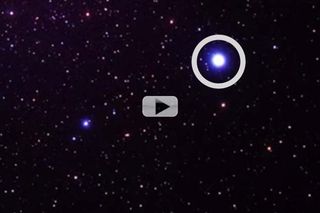
Amateur astronomers Mike Kentrianakis, Dave Cartenuto and Dick Rinehart simulate the "winking out" of Regulus by Asteroid 163 Erigone on March 20th, 2014. (video looped) See it here as well: https://www.youtube.com/watch?v=BDiroNjGoic
[How to See Asteroid Erigone Eclipse Regulus]
Asteroid Will Block Bright Star - How To Watch Online | Video
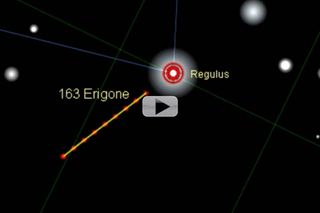
On March 20th, 2014, Asteroid 163 Erigone will 'occult' Regulus, one of the brightest stars in the sky. This event will be visible from parts of the Northeast United States. Slooh.com will have live coverage as shown in this video.
[How to See Asteroid Erigone Eclipse Regulus]
Asteroid Will Block Bright Star - Real-Time Map Tracker | Video
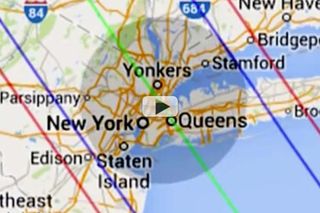
Skywatchers Mike Kentrianakis, Dave Cartenuto and Dick Rinehart also developed this animation of the movement of the asteroid's shadow on the Earth in concert with a clock counting down to the nearest 100th of a second. To see the original video, visit: http://youtu.be/2rhxM6MnVO4
[How to See Asteroid Erigone Eclipse Regulus]
Regulus and Asteroid 163 Erigone on March 20, 2014
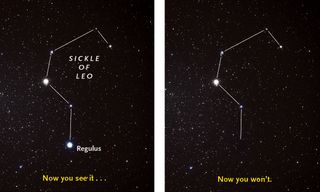
The bright star Regulus will vanish behind the asteroid 163 Erigone for several seconds on the morning of March 20, 2014, for well-placed skywatchers. The star is located in the "sickle" of the constellation Leo, the Lion. [How to See Asteroid Erigone Eclipse Regulus]
Get the Space.com Newsletter
Breaking space news, the latest updates on rocket launches, skywatching events and more!
Stellarium Sky Map Showing Regulus
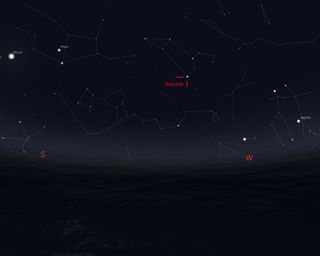
This Stellarium sky map shows the position of the star Regulus in the constellation Leo as it will appear in the southwestern sky, 90 degrees to the right of the moon, at 2 a.m. EDT on March 20, 2014. Regulus will appear roughly as high as the moon, and be the brightest star in the area. [How to See Asteroid Erigone Eclipse Regulus]
Regulus Star in Leo
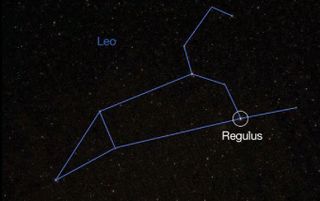
This image from a NASA March night sky video shows the constellation Leo, the Lion, and position of the bright star Regulus. [How to See Asteroid Erigone Eclipse Regulus]
Asteroid Erigone Occults Regulus, March 2014
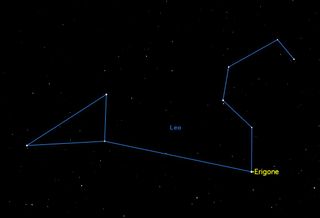
Thursday, March 20, 2:07 a.m. Asteroid 163 Erigone will pass in front of the first magnitude star Regulus, causing it to blink out of sight for a few seconds. This will be visible only on a narrow path starting over Long Island, New York, through Kingston, Ontario, Algonquin Provincial Park, and the western part of Hudson’s Bay. A map of the predicted path is shown here http://www.asteroidoccultation.com/observations/RegulusOcc/. Erigone itself will be 11th magnitude, not visible to the naked eye. [How to See Asteroid Erigone Eclipse Regulus]
Mars, Regulus and the Crescent Moon Over Ohio
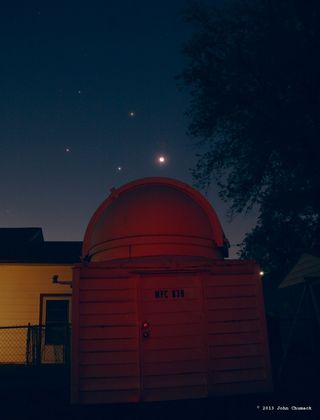
Astrophotographer John Chumack sent in a photo of Mars (red), Regulus (blue star) and the waning crescent moon in a triangle over his backyard observatory in Dayton, OH. Photo taken Oct. 1, 2013. [How to See Asteroid Erigone Eclipse Regulus]
Join our Space Forums to keep talking space on the latest missions, night sky and more! And if you have a news tip, correction or comment, let us know at: community@space.com.

Space.com is the premier source of space exploration, innovation and astronomy news, chronicling (and celebrating) humanity's ongoing expansion across the final frontier. Originally founded in 1999, Space.com is, and always has been, the passion of writers and editors who are space fans and also trained journalists. Our current news team consists of Editor-in-Chief Tariq Malik; Editor Hanneke Weitering, Senior Space Writer Mike Wall; Senior Writer Meghan Bartels; Senior Writer Chelsea Gohd, Senior Writer Tereza Pultarova and Staff Writer Alexander Cox, focusing on e-commerce. Senior Producer Steve Spaleta oversees our space videos, with Diana Whitcroft as our Social Media Editor.
